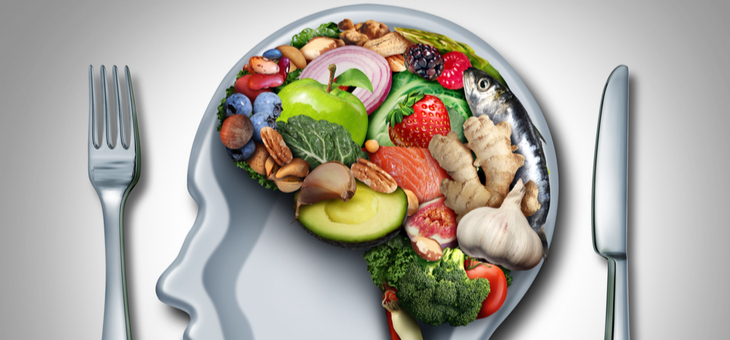If you have changed to a healthy diet to start the new year, but are still having slight deviations from the plan, you could be undoing all the good work the diet is doing for the health of your brain.
The Mediterranean diet has been associated with better brain health and maintenance of cognitive abilities into older age, but a study from Rush University has found that deviation from the diet can quickly reduce the cognitive benefits.
A Mediterranean diet is based on vegetables, wholegrains, legumes and nuts, with healthy fats such as olive oil. Intake of red meat, saturated fats and sugar, which are regularly associated with slower rates of cognitive decline in older adults, is limited.
The study claims that when this diet is combined with elements from a Western diet such as fried food, sweets, refined grains, red meat or processed meat, the benefits of the Mediterranean diet are diminished.
The study evaluated the brain health of 5001 adults over the age of 65 from 1993 to 2012, with the study participants completing a cognitive assessment questionnaire that tested their memory and basic information processing skills every three years. They also filled out a questionnaire about the frequency with which they consumed 144 food items.
The researchers then analysed how closely each person adhered to a Mediterranean diet or how much each participant adhered to a Western diet.
Each food item in the study was given a score from zero to five to compile a total Mediterranean diet score from zero to 55 for each participant.
The study found that those with slower cognitive decline over the years of follow-up were those who adhered most closely to the Mediterranean diet, with little to no foods that formed part of the Western diet.
Conversely, participants who had more of the Western diet had no beneficial effect from the eating of the healthy food components provided in slowing cognitive decline.
Rush University’s Dr Puja Agarwal said the results showed that Western diets may adversely affect cognitive health.
“Individuals who had a high Mediterranean diet score compared to those who had the lowest score were equivalent to being 5.8 years younger in age cognitively,” Dr Agarwal said.
Dr Agarwal said that the results complemented other studies showing that a Mediterranean diet reduced the risk of heart disease, certain cancers and diabetes and also supported previous studies on Mediterranean diet and cognition.
The study also noted that most of the dietary patterns that have shown improvement in cognitive function among older adults, including the Mediterranean, MIND, and DASH diets, have a unique scoring matrix based on the number of servings consumed for each diet component.
“The more we can incorporate green leafy vegetables, other vegetables, berries, olive oil, and fish into our diets, the better it is for our ageing brains and bodies,” Dr Agarwal said.
“Other studies show that red and processed meat, fried food and low wholegrain intake is associated with higher inflammation and faster cognitive decline in older ages.
“To benefit from diets such as the Mediterranean diet, or MIND diet, we would have to limit our consumption of processed foods and other unhealthy foods such as fried foods and sweets.”
Have you changed your diet to look after the health of your brain and fight cognitive decline? Do you eat more of a Western diet or a Mediterranean diet?

